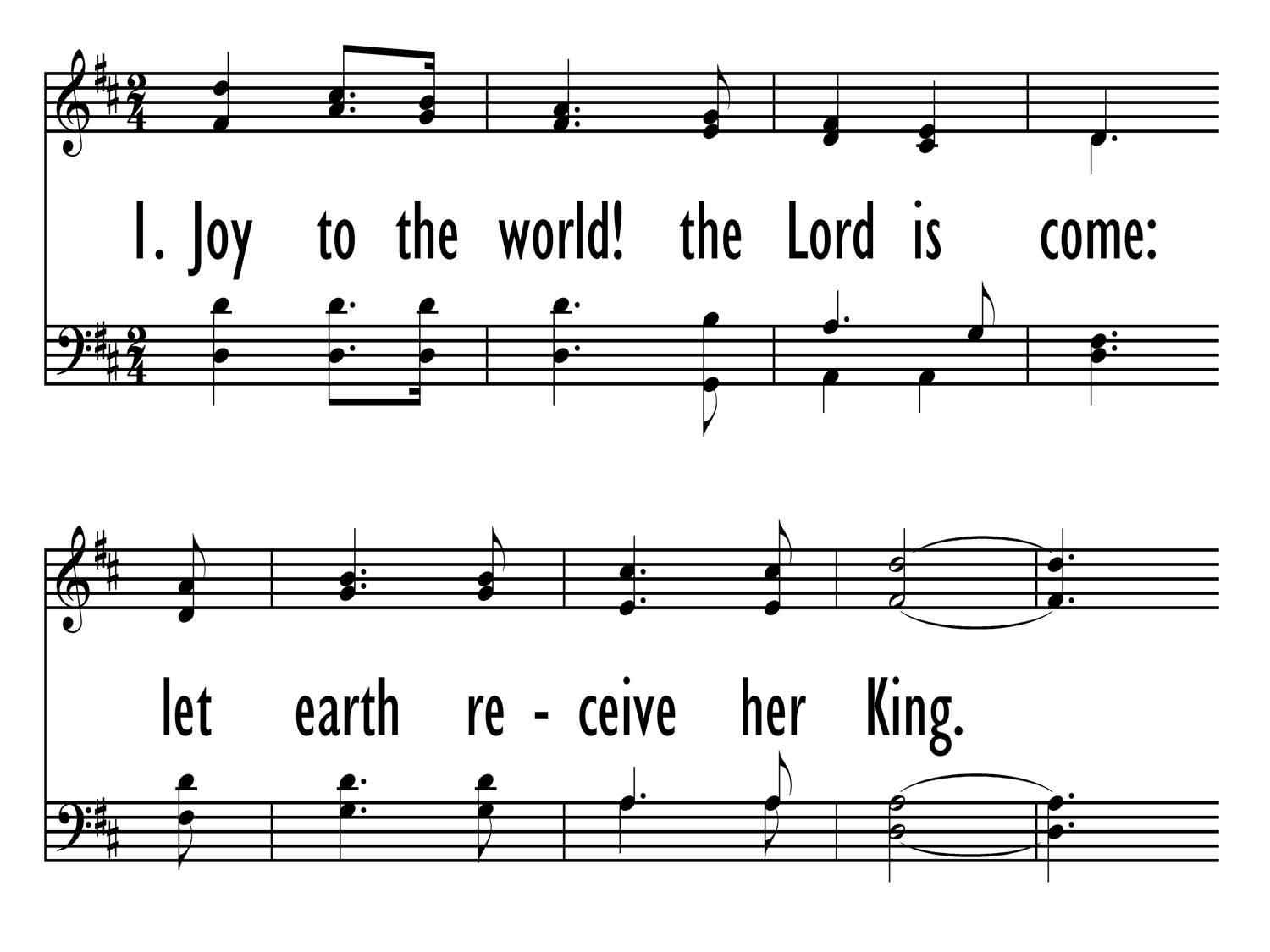- |
User Links
Joy to the World (Psalm 98)
Hymn Information
- First Line
- Joy to the world! the Lord is come
- Author
- Isaac Watts, 1674-1748 (1719)
- Tune Name
- ANTIOCH
- Composer
- Lowell Mason (1848)
- Topic
- Church Year: Christmas · Church Year: Christ the King · Jesus Christ: King · Jesus Christ: Lord · Jesus Christ: Reign · Joy · Music and Singing · Sorrow
Copyright Information
- Text Copyright
- Public Domain
- Tune Copyright
- Public Domain
- Reprint/Projection Information
- Words and Music: The Words and Music are in the Public Domain; you do not need permission to project or reprint the Words and Music.
Full Text
Scripture References
Further Reflections on Scripture References
Isaac Watts (PHH 155) wrote this text as a paraphrase of Psalm 98. He published it in his Psalms of David Imitated (1719) under the heading “The Messiah's Coming and Kingdom.” The paraphrase is Watts' Christological interpretation.
Consequently, he does not emphasize with equal weight the various themes of Psalm 98. In stanzas 1 and 2 Watts writes of heaven and earth rejoicing at the coming of the king. An interlude that depends more on Watts' interpretation than the psalm text, stanza 3 speaks of Christ's blessings extending victoriously over the realm of sin. The cheerful repetition of the non-psalm phrase "far as the curse is found" has caused this stanza to be omitted from some hymnals. But the line makes joyful sense when understood from the New Testament eyes through which Watts interprets the psalm. Stanza 4 celebrates Christ's rule over the nations.
Psalter Hymnal Handbook
Confessions and Statements of Faith References
Further Reflections on Confessions and Statements of Faith References
The confident and joyful proclamation of this well-loved carol is echoed in the conviction expressed in Our World Belongs to God, paragraph 18 that “our Lord set out on the long road of redemption to reclaim the lost as his people and the world as his kingdom.” As a result, “Jesus ascended in triumph, raising our humanity to the heavenly throne. All authority, glory and sovereign power are given to him” (paragraph 27).
Joy to the World (Psalm 98)
Introductory/Framing Text
Call to Worship
Assurance
Additional Prayers
Joy to the World (Psalm 98)
Tune Information
- Name
- ANTIOCH
- Key
- D Major
- Meter
- 8.6.8.6.6.8


 My Starred Hymns
My Starred Hymns






